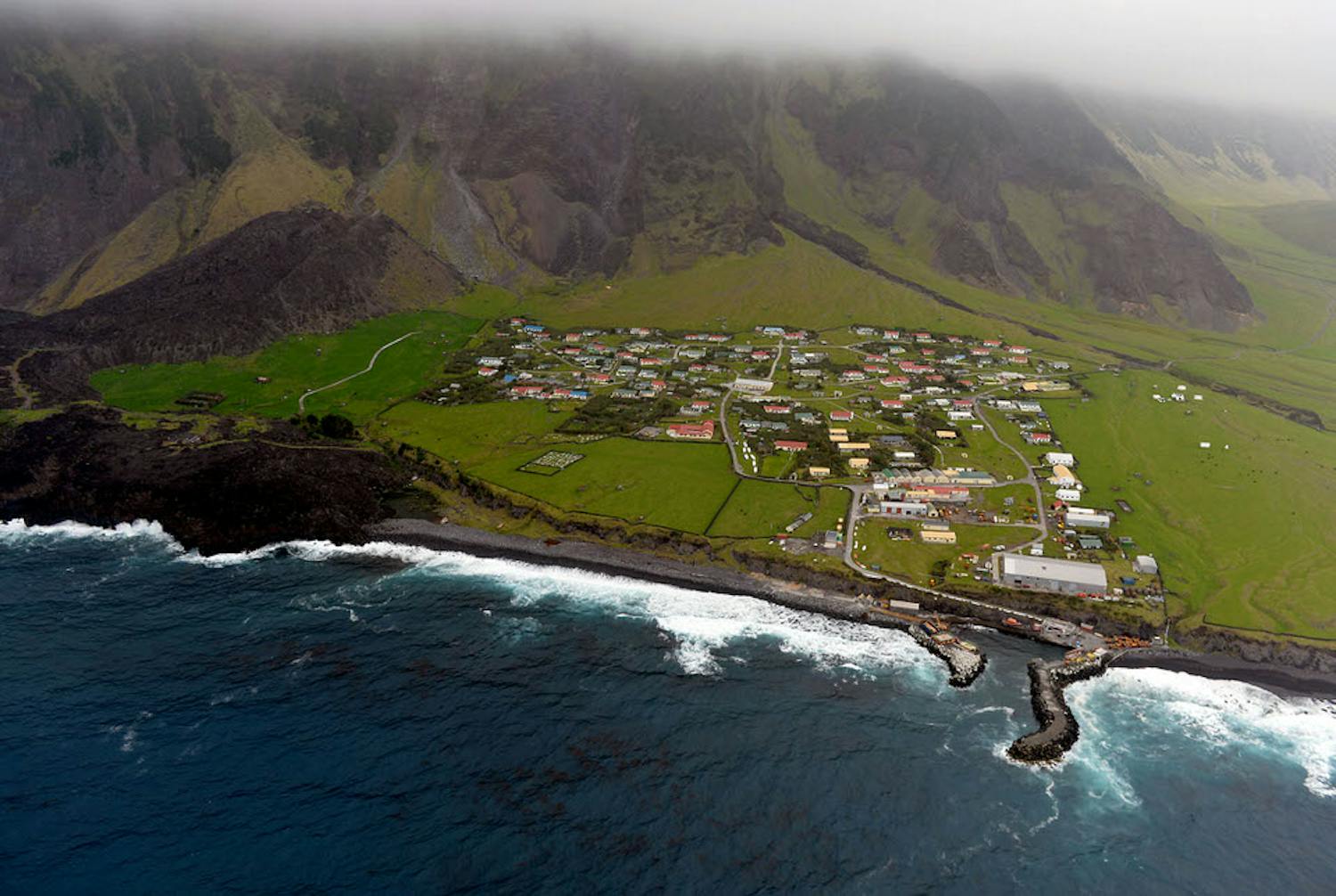Context
- The isolated UK Overseas Territory of Tristan da Cunha, which is home to the world’s most remote human settlement, declared the largest fully protected marine reserves in the Atlantic Ocean.

Source: Archinect
What is Tristan da Cunha?
- Tristan da Cunha, which is inhabited by less than 300 humans is a small chain of islands over 6,000 miles from London in the South Atlantic and the water around the islands are considered to be the richest in the world.
- The mountainous archipelago Tristan da Cunha is home to tens of millions of seabirds and several unique land birds that are comparable to the Galapagos island finches, as per the Royal Society for the Protection of Birds (RSPB), which has been working with the local community and government of Tristan da Cunha.
- As of now, there are two critically endangered species in the island group and over five endangered species.
- The island group is also home to the World Heritage Site of Gough and Inaccessible Islands, which is one of the most important seabird islands in the world. It is located about 2,000 km from the nearest land and as per the RSPB, it takes longer to sail to Tristan da Cunha from Cape Town than it took Apollo 11 to reach the Moon.
What does the announcement mean for the island group?
- After joining the UK’s Blue Belt Programme, it will become the largest no-take zone in the Atlantic and the fourth largest on the planet. This means fishing, mining and any such activities will not be allowed.
- Further, this development is also supported by the Blue Belt Programme, which provides over 27 million pounds over a period of five years for marine conservation around the UK Overseas Territories and international organisations.
- MPZs involve the management of certain natural areas for biodiversity conservation or species protection and are created by delineating zones with permitted and non-permitted areas within that zone.
- As per the National Geographic Society’s Campaign for Nature Initiative, over 30 percent of the world’s oceans need to be protected to allow ecosystems to provide benefits like ample fish stocks.
Source: Indian Express
For More Such Protected Areas in news: Click Here
